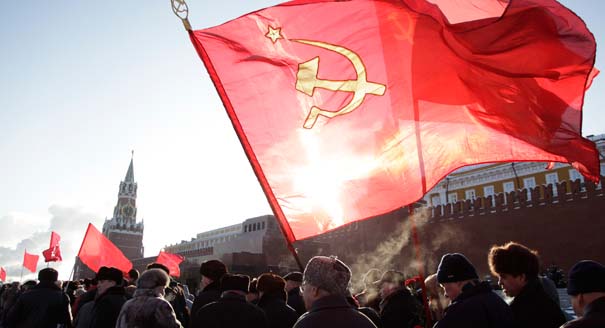Source: Carnegie Moscow Center Working Paper
 Engaging History: The Problems & Politics of MemorThe new issue of the Carnegie Moscow Center's Working Papers series explores the phenomenon of “historical politics”—the use and misuse of history as a tool of political competition and control—in Russia and the post-socialist space, including Ukraine and Estonia; the development of this practice; and various strategies for coping with it. Included in the publication are, among other things, translations of articles first published in Russian in the Carnegie Moscow Center's Pro et Contra journal and the summary of a seminar on historical politics held in Kazan in March 2010.
Engaging History: The Problems & Politics of MemorThe new issue of the Carnegie Moscow Center's Working Papers series explores the phenomenon of “historical politics”—the use and misuse of history as a tool of political competition and control—in Russia and the post-socialist space, including Ukraine and Estonia; the development of this practice; and various strategies for coping with it. Included in the publication are, among other things, translations of articles first published in Russian in the Carnegie Moscow Center's Pro et Contra journal and the summary of a seminar on historical politics held in Kazan in March 2010.
In this Working Paper, Alexei Miller argues that the politics of history is steadily eroding possibilities for public discussion in Russia itself and between Russia and its neighbors, as both sides attempt to inculcate ideas that run counter both to reality and the interests of the opposite side. By following its neighbors down the road of historical politics, Russia is only reinforcing the atmosphere of “a dialogue of the deaf.” Alexander Astrov holds that Estonia’s successful accession to NATO and the EU gave birth to an increasing sense of uncertainty: the shared, consolidated narrative that had dominated public life for so many years has now suddenly lost its relevance. This so-called “ontological anxiety” ultimately led to a succession of internal political crises, to which the “anti-totalitarian” rhetoric attempts to provide a response. Georgy Kasyanov describes the development of the Holodomor narrative in Ukraine, which, he argues, pursued the goal of turning the 1932-33 famine into one of the founding symbols of the national historical myth.
Key conclusions include:
- Due to society's allergy to ideology, as well as to the lack of consensus on the major events of the 20th century, Russia does not possess enough “national myths” to build a national identity.
- The only event that could act as a basis for a unifying ideological narrative—the victory in World War II—is rife with contradiction.
- The Russian government’s position in this case is biased and simplistic, leaving no space for pluralism.
- There are three approaches to engaging with history in Russia: political activism, discourse activism and research activism. Although the field of civic engagement with history is lively, and historical activists in Russia seem to be interested in what each other are doing, still they do not have much impact on society, a failure due primarily to Russians’ indifference not only to their past, but to their present political life.
Summing up a seminar on historical politics held in Kazan, Andrei Ryabov writes that historical politics has become an increasingly visible phenomenon in public and political life in the post-Soviet countries over recent years, extending far beyond the widespread practice of politicizing history. Historical politics emerges only in a pluralistic (though not necessarily fully democratic) system that has public competition between various actors. It is carried out with the aim of forming in the public consciousness certain dogmatic interpretations of national history. At the same time, historical politics as an activity aimed at forming specific images in the minds of the “mass consumer” does not mean renouncing or banning debate within the professional community of historians. It seeks, rather, to draw a dividing line between “history for the masses” and history for a narrow circle of professionals and intellectuals.
